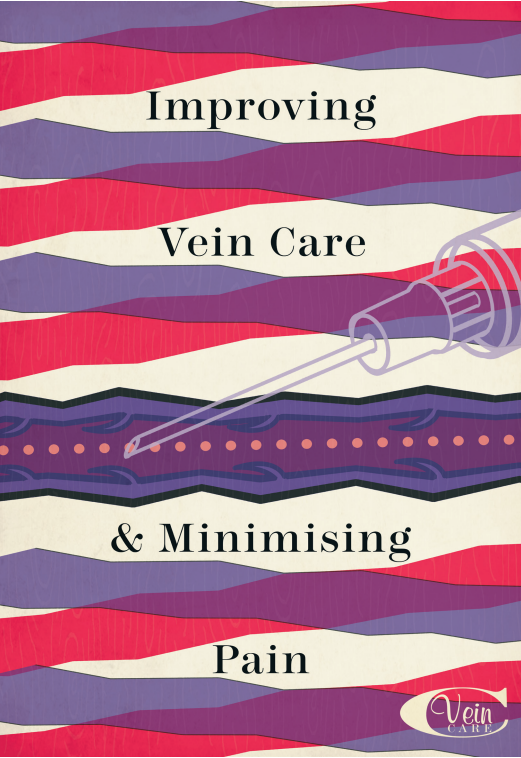7 March 2023
A new toolkit to support people who inject drugs to care for their veins and make changes to prevent bacterial infections and related health problems is available for free on the University of Bristol’s express licensing portal.

At least half of people who inject drugs have developed a bacterial skin infection in the last year and many do not seek any medical treatment. The most common bacterial infections include ulcers, abscesses and cellulitis. These infections can lead to complications such as gangrene, amputation, and endocarditis (infection of the heart). There is currently limited evidence on successful ways to reduce the risk of these infections among people who inject drugs in the UK.
Damage from missing a vein can cause pain and lead to bacterial infections. Ensuring vein access and injecting without pain are also priorities for people who inject drugs. For these reasons, the toolkit focuses on supporting vein care to prevent bacterial infections.
The toolkit, co-produced by people who inject drugs, service providers including Bristol Drugs Project and key stakeholders including researchers from the University of Bristol, Exchange Supplies and Linnell Communications, is designed to support positive, non-judgemental conversations between service providers and their clients. The toolkit can be used by anyone working with people who inject drugs. It is hoped it will be particularly useful for increasing the reach of harm reduction advice beyond specialist drug services.
The REACT toolkit may be useful:
– During a routine appointment with a client as part of the normal package of support provided
– As part of the provision of injecting equipment
– In response to a client raising an issue or concern about their injecting practice or health (e.g. pain when injecting)
– If a client describes a harmful injecting practice (e.g. inappropriate use of wipes).
The resources for the REACT toolkit include:
1. Introduction manual, instructions for how to use the intervention materials, and a ‘questioning and resources’ guide to accompany it.
2. A link to a short online course for service providers to provide the necessary information and knowledge underpinning delivery of the materials.
3. Toolkit consisting of cards covering the following areas:
- Handwashing/swabbing;
- Use of acids to prepare drugs;
- Use of water for injection preparation;
- Reuse of equipment;
- Rotating sites.
Dr Jo Kesten, Research Fellow in Bristol Medical School: Population Health Sciences (PHS) National Institute for Health and Care Research (NIHR) Health Protection Research Unit [HPRU] in Behavioural Science and Evaluation and NIHR Applied Research Collaboration West at the University of Bristol, said:
“Our previous research has shown that the toolkit was viewed as acceptable and mostly feasible to people who inject drugs and service providers. We hope the toolkit will help support conversations and equip people who inject drugs with
knowledge about safer injecting practices and provide resources to support them. This is especially important since bacterial skin and soft tissue infections among people who inject drugs such as abscesses and cellulitis are an increasing public health concern.”
Alistair Flowers, Chair of the English Substance Use Commissioners’ Group (ESUCG) Harm Reduction Working Group, said:
“The ESUCG is glad to be able to support the dissemination of the REACT Toolkit to commissioners across England. The Harm Reduction Group feel that the toolkit is engaging and able to be used in a variety of settings from clinical and outreach settings, through to use by and for peer networks. The ESUCG supports a sector-led improvement approach to commissioning and it is fantastic to be able to share this toolkit and to promote it as a model of good practice. The toolkit supports problem solving conversations and can be a useful resource to protect and improve the health of people who inject drugs.”
Access the toolkit here: REACT (Reducing bACTerial Infections) Materials
Further information
About the NIHR Health Protection Research Unit [HPRU] in Behavioural Science and Evaluation at the University of Bristol
The NIHR HPRU in Behavioural Science and Evaluation at University of Bristol is one of 14 HPRUs across England, part of a £58.7 million investment by the NIHR to protect the health of the nation.
The NIHR HPRU in Behavioural Science and Evaluation is a partnership between the UK Health Security Agency (UKHSA) and University of Bristol, in collaboration with MRC Biostatistics Research Unit at the University of Cambridge and University of the West of England.
Each NIHR HPRU undertakes high quality research that is used by UKHSA to keep the public safe from current and emerging public health threats.
About the NIHR
The National Institute for Health and Care Research (NIHR) is the nation’s largest funder of health and care research. The NIHR:
- funds, supports and delivers high quality research that benefits the NHS, public health and social care
- engages and involves patients, carers and the public in order to improve the reach, quality and impact of research
- attracts, trains and supports the best researchers to tackle the complex health and care challenges of the future
- invests in world-class infrastructure and a skilled delivery workforce to translate discoveries into improved treatments and services
- partners with other public funders, charities and industry to maximise the value of research to patients and the economy.
The NIHR was established in 2006 to improve the health and wealth of the nation through research, and is funded by the Department of Health and Social Care. In addition to its national role, the NIHR supports applied health research for the direct and primary benefit of people in low- and middle-income countries, using UK aid from the UK government